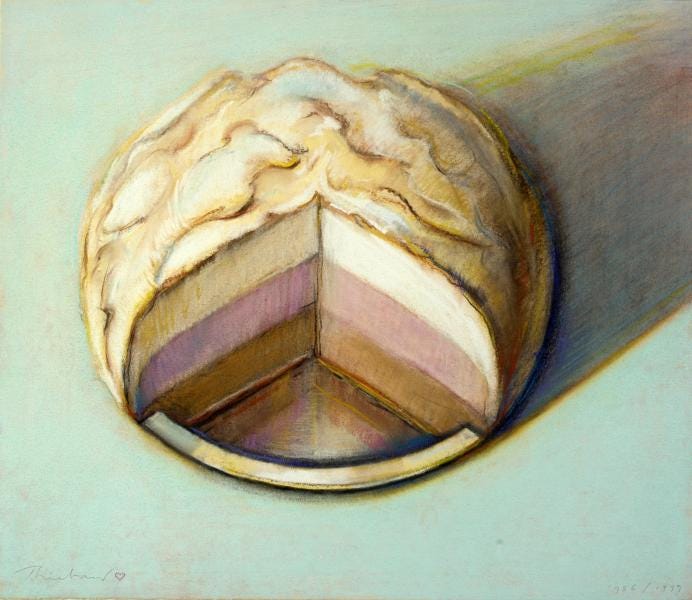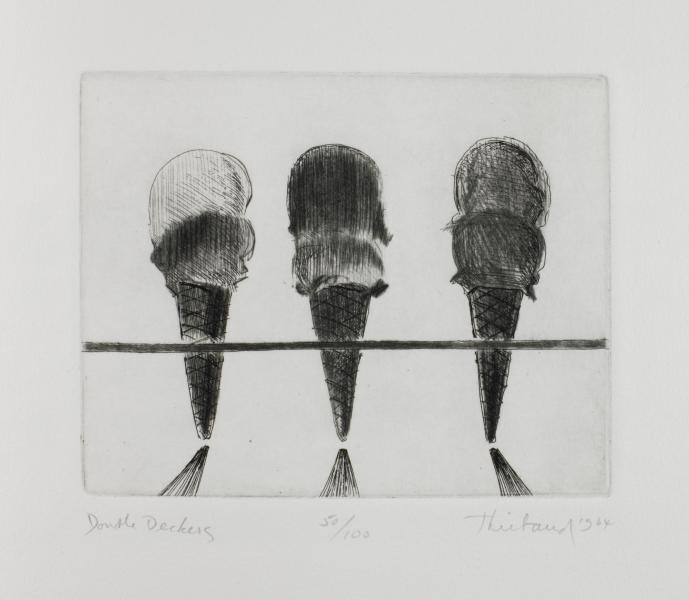Hello!
Welcome to the beginning of the end of this season. I suspect we have only a few weeks left here. Although not a sequel to Season 2’s Daak #32 - Writing and Food, you may consider this issue its spiritual successor.
It is 10 PM, one girl out of the dozen and three kids screeches for reasons that remains unresolved. I share a generous spoon of brown butter sauce with my shirt on that account. A gentle Sikh man on our shared community table looks at me with a knowing smile; next to him his wife and daughter debate the night's menu.
I split a roast pumpkin tortellini in the said brown butter sauce neatly. Smaller bites are healthier I have read. My friend has stirred his Vietnamese cold coffee so much that it looks like a Frappuccino. He takes a big sip before asking me what would I choose between two options — spending money on a badminton coach or on a gym trainer?
I give a sermon on calisthenics instead and then tell him that after 35 our muscles atrophies. My friend is not pleased with this news at all, he takes another sip and mulls over the fact in silence.
Hunger however shows no signs of diminishing with age. We order a panini and ask for extra fries. Uncle Sikh is quietly holding a solitary fry that Mrs and daughter don’t let him have more of. I gave him a knowing smile, that however annoyed him.
My friend and I exchange our thoughts on stand up comedians and their marriage jokes and lament at how relatable they are now. Travails with belt buckles against a bulging belly also make a fleeting but sad appearance. The sandwich arrives but it is the fries that get done first. We discuss portion sizes in America on that note. "That way we are lucky here," my friend concludes. I meanwhile savour the sandwich. That extra slice of cheese hiding the zucchini's misdemeanours on the tongue is perfect.
A lady to my left facing the unruly children’s squad rolls her eyes and then stares blankly at them. She has a kale smoothie that she mindlessly stirs with a limp paper straw. What are they even doing at a bar at this hour?
"Dessert?" Checks my friend. I think I will have a kale smoothie I tell him, I need something light. “You'll have breakfast now,” he asks. I look back at the pale green glass of the unfinished smoothie.
"Yeah, no."
“You know those kids, in 10 years, they will all split into groups of three, and then they will gather around tables of four where only two will show up,” I add.
I remember then why I opened the conversation on American meal sizes. A couple of nights back at Starbucks I caught up with a friend of mine who had returned from a trip. I had had a hot chocolate there that was neither hot nor chocolaty. I feel obliged to correct it. I summon the server and ask him, "tell me, how is your hot chocolate here."
"Medium thick sir", he says.
I'll have it I tell him. The mistake of two nights past will be rectified tonight.
I
Healthy foods are becoming increasingly expensive the world over, while unhealthy food is becoming cheaper and easier to buy. "The price of fruits and vegetables is going up and up," he says. "The price of processed foods is going down and down."
In other words, it is becoming easier and more economical to buy unhealthy foods.
II
Key lime pie and the methods of rationality. This post is about two things: public epistemology, and pie.
III
Hide your kale smoothie, an agreeable recipe.
IV
More than a quarter century ago,” I wrote: “It now seems ludicrous that science should have much to say about cooking… cooking is slowly recovering from ‘domestic science’.” In the 2014 epilogue, I asked: “Has food recovered from domestic science?”
In which “Science” kills a few million people
V
Potatoes are not from Idaho. Tomatoes are not from Italy. It is my job to remind students especially those colonized by the Spanish that they have and are feeding the world. Without them, the Renaissance wouldn't have happened. Without cacao Europe would have stayed on the messy teat of long beer for a while longer before tea and coffee made their way west. We owe such a debt to these cultures and I work to remind these students of their heritage.
Interview with Nickawanna Shaw





